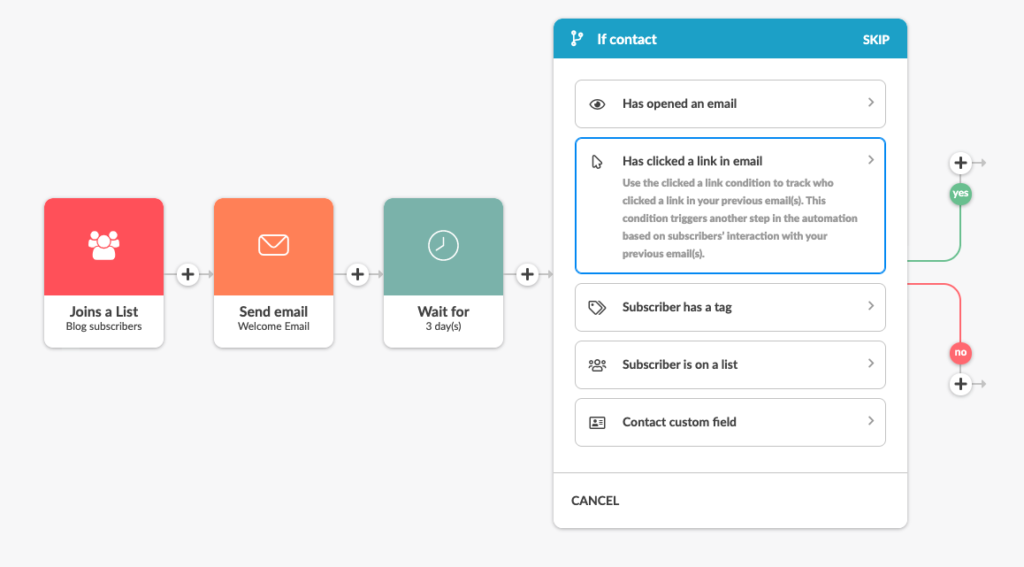20 New Ideas For Picking Email List Sellers
20 New Ideas For Picking Email List Sellers
Blog Article
What Aspects Should I Be Thinking About When Buying An Hospital Ceo Email List?
When you purchase a hospital CEO list it is important to take care to ensure that the data is reliable, accurate, and compliant with all legal regulations. Here are a few important aspects to take into consideration: Data quality and accuracy
Source of information: Ensure that the list provider has reliable sources, such as professional databases, business directories or opt-ins that are verified. Data sources that are reliable help to reduce the chance of having outdated or irrelevant information.
Verification Process Verify the frequency with the rate at which data is changed. Unvalidated emails can lead to a an excessive bounce rate that will affect your marketing and image.
Segmentation and Filters Make sure that the list is able to be segmented for example, by geographic location, hospital size and the type of hospital (e.g. private or public) or by specific areas of specialization. Marketing campaigns focused on specific areas of expertise are more effective than those that are broader in scope.
Email Deliverability: Ask your provider if they offer assurances on delivery rates. An excessive bounce rate may adversely affect your domain's email reputation when sending emails.
2. Legal Regulations
Data Privacy Laws : Ensure that your email lists comply with the regulations, such as the General Data Protection Regulations (GDPR) in Europe as well as California Consumer Privacy Acts in the U.S. Ensure the data is collected with consent and used responsibly.
CAN-SPAM Act: When you're in the U.S., ensure the list is compliant with the CAN-SPAM Act, which governs commercial emails. Failure to comply could result in penalties.
Permission-Based marketing: Verify that your CEO has signed their approval to the use of the email addresses. If you send emails to people who are not invited, it could lead to penalties and harm your reputation.
3. Provider Reputation
Testimonials and Reviews - Study the reputation of the service through online reviews, testimonials and case studies. There are positive reviews about similar products from other customers.
Transparency - Ensure that the provider's data collection, maintenance and updating processes are transparent. Avoid providers that can't describe the process of collecting data.
Customer Support: Select an organization that provides a robust customer service. There may be a need for assistance with customizing your data, technical issues, or understanding legal requirements.
4. Cost and Value
Pricing Models: Different companies have different pricing models (e.g. pay-per lead or subscription, or flat fee). Check that the price is compatible to your budget as well as the expected returns.
Refund Policy: Choose a provider who offers an option for reimbursements or replacements of inactive emails or contact numbers that aren't in compliance with your needs.
Additional Services: A lot of providers offer additional services such as email management, or integration with CRM. Think about whether these additional services will aid your business.
5. Data Usage
Exclusive vs. Shared Lists - Determine whether this list of email addresses is exclusively for your business, or shared among many buyers. A list that is exclusive will result in better engagement, while the shared list could result in audience fatigue due to over-contact.
Licenses and Ownership: Know whether you're the owner of data after the purchase or possess a single-use licence. The continuous access to data may require recurring payments or licenses.
6. Data Integration and Format
CRM Compatibility: Examine to see if the email list can be seamlessly integrated into your CRM software or email marketing software. Many platforms can support formats such as CSV, Excel and others.
When you purchase the data, consider how easy you find it to filter, segment and control it. If you need to manipulate complicated data, it might not be worth your investment.
7. Ethical concerns
Hospital CEOs have a lot of work on their plate. Be sure that the reason for your outreach is pertinent to the role they play and beneficial for them. An unrelated message or invasive can damage your reputation.
Beware of spam: Inundating recipients with a large number of messages could be deemed spam and damage your email sender's reputation. Create a time-bound, strategic campaign to prevent the issue.
Conclusion
When approached strategically, buying an email list of hospital CEOs may be a worthwhile investment. Prioritize high-quality data, legal compliance, relevance and effectiveness to ensure your outreach effort is successful and well-received. To maximize the return on investment You should investigate your service provider and make sure that you know their terms. Take a look at the expert hospital ceo email list for website tips.
What Are The Things I Should Consider Before Purchasing The Urgent Care Email List?
If you're looking to purchase an urgent care email list, be sure to take into consideration a number of factors. This includes whether the list is accurate as well as efficient and legal, as well as relevant to your goal for marketing. Below are some important aspects to consider. Quality of data and accuracy
Source of Data: Ensure that the data is collected from reliable sources, for example, medical associations, healthcare databases or directories for professionals. Avoid lists that are compiled using scraping, or using unreliable techniques. These may include inaccurate and outdated information.
Verification: Confirm if the list of email addresses was frequently up-to-date. An authentic email service follows a rigorous verification process that removes outdated duplicate or invalid emails. This will ensure high deliverability and lower bounce rates.
Segmentation and Targeting: The list should offer segments such as location (city, state, region) and the size of the urgent care facility and the specialties they offer (e.g. diagnostics, pediatrics) and decisions-making roles (e.g., medical directors or practice owners, etc.). Lists with a specific focus can increase the outreach of your organization and improve engagement.
2. Legal Regulations
Data Privacy Laws: Ensure the compliance of local and national regulations, such as the California Consumer Privacy Act, that is in force in the U.S.A., as well as applicable European data protection laws. This means that email data must be collected and processed in a legal manner with the permission of all parties involved.
CAN-SPAM Act Compliant: Email marketing campaigns within the U.S. are required to conform to the CANSPAM Act. You must include your email address and a clear "opt-out" option. Non-compliance may result in penalties as well as a negative reputation for your brand.
Opt-in Consent: Make sure that the email addresses included on the list have explicit consent to opt-in. That is, the users have opted-in to allow the receipt of marketing emails from third party companies. This reduces the chance of legal concerns.
3. Provider Reputation
Established Providers: Look for a company that has a history of delivering email lists with high quality and compliance. Look through testimonials, reviews or case studies of past clients to determine the service's quality of service and satisfaction of customers.
Transparency. Providers must be transparent about how their the data is collected, and the frequency at which they update their data. This could be a sign of a poor quality data when the service provider fails to provide clear answers regarding the method of collecting data.
Customer support is vital when your business requires help in compliance, technical issues or customizations. A responsive provider can ensure that you receive the best benefit from your email list.
4. Costs and Return on Investement (ROI).
Pricing Models: Email list service providers generally have different pricing models, such as pay-per-contact or flat fees. You should consider the pricing structure in relation to your marketing budget and anticipated returns. The cost of the list with the quality and relevance of the information.
Refund or Replacement Policy: Most reputable providers provide a refund or a replacement policy if the majority of their email addresses can't be delivered or are not valid. Be sure to understand the conditions and terms of the policy prior to you buy.
Value for money: Instead of picking the cheapest list choose lists that are worth your money thanks to accurate information and precise segmentation. By investing your money into a quality list will boost your engagement rate and give you a better return on the investment.
5. Data Use and Ownership
Lists which can be used multiple times, or for only single campaigns: Be certain that the list is intended to be used once, or several times. Lists that can be used for multiple purposes offer greater value, particularly when you intend to conduct continuous outreach campaigns.
Exclusive vs. Shared Lists: Determine whether the list is only for your business or shared with other buyers. Shared lists can lead to lists fatigue because recipients might receive several marketing messages. Engagement rates are likely to decrease.
6. Data Integration and Format
CRM compatibility: Make sure whether the list of emails is delivered in a format that is that is compatible with your Customer Relationship Manager (CRM), or the email platform. This could be CSV or Excel. This will allow for a seamless integration, and allow you to launch your campaign in a short time.
Ease of use Email lists must be easy to manage and segment by specific criteria. A well organized list will allow you to personalize and target your emails more effectively.
7. Ethical Concerns
Relevance: Medical professionals are busy and should make sure that the content you provide is pertinent and valuable. Send messages that address the specific needs of their clients. Sending irrelevant content could harm your brand's image and decrease engagement.
Be careful when you send out emails. Unsolicited emailing or excessive emailing can lead to spam complaints and can damage your reputation as the sender.
Conclusion
When you purchase an urgent care email list, you should focus on the accuracy of data, legal compliance, and the credibility of the service. The lists should be regularly segmented and should adhere to privacy laws. It is possible to increase the number of people who are on it through investing in a properly-targeted quality, high-quality list and distributing relevant material. Follow the expert urgent care email list for more recommendations.